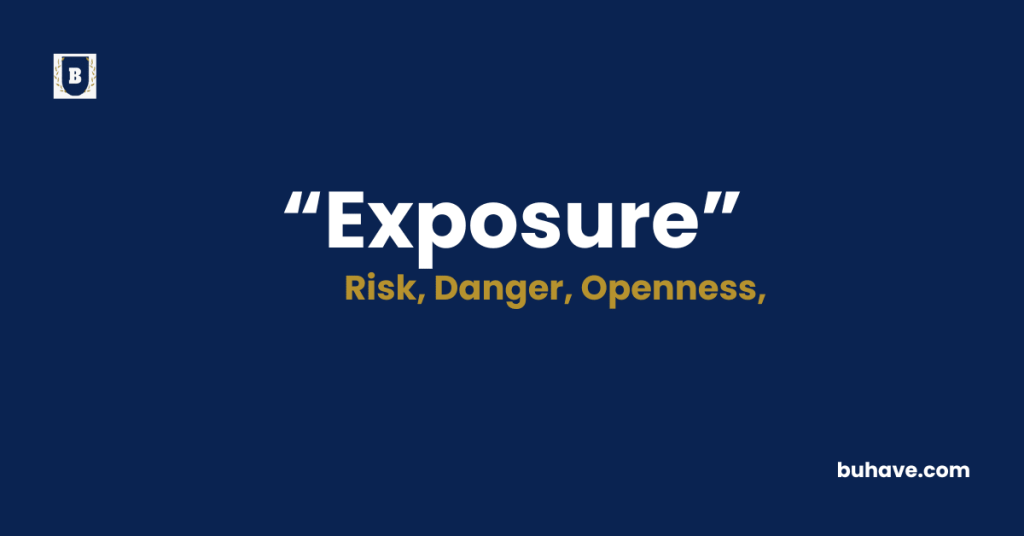The word ‘Exposure’ (Noun) refers to the state of being subjected to something whether it’s elements, experiences, risk, or public attention. In this guide, you’ll explore its full meaning, definition, etymology, real-world examples, and a list of common synonyms and antonyms.
Exposure Explained in Depth
A complete and detailed guide to the word ‘Exposure’ including meaning, definition, examples, etymology, synonyms, and antonyms.
Meanings of Exposure
Exposure describes the act of being revealed, unprotected, or affected by something. It can refer to physical conditions, such as exposure to cold weather, or abstract concepts like exposure to new cultures or public scrutiny. It also applies in fields like photography, medicine, finance, and journalism.
Definition
Exposure is defined as the condition of being exposed to contact with something (such as danger, the elements, media, or information), or the action of making something visible or known.
Etymology
The word “exposure” comes from the Latin exponere, meaning “to set forth” or “to place out,” and passed through Old French exposer. It entered English in the 1600s, originally referring to the act of laying something open to view or danger.
Example Sentences
- Prolonged exposure to the sun can cause skin damage.
- The documentary gave the issue much-needed media exposure.
- Traveling provides exposure to different cultures and ways of life.
Exposure Synonyms
- Revelation
- Disclosure
- Visibility
- Uncovering
- Publicity
- Contact
- Vulnerability
- Receptiveness
- Presentation
- Introduction
Exposure Antonyms
- Concealment
- Protection
- Cover
- Seclusion
- Hiding
- Obscurity
- Isolation
- Shielding
- Privacy
- Containment
FAQs about Exposure
Here are some frequently asked questions (FAQs) about the word “Exposure”
1. What does exposure mean in health?
In health, exposure refers to contact with a harmful agent, such as a virus, chemical, or radiation, that can lead to illness or injury.
2. How is exposure used in photography?
In photography, exposure is the amount of light that reaches the camera sensor or film, determining how bright or dark an image appears.
3. Is exposure always negative?
No. Exposure can be positive or negative depending on context—exposure to nature may be beneficial, while exposure to hazards can be harmful.
4. What does media exposure mean?
Media exposure means public visibility through television, newspapers, online platforms, or social media.
5. What is cultural exposure?
Cultural exposure involves engaging with different traditions, values, and lifestyles, which can broaden understanding and perspective.

















